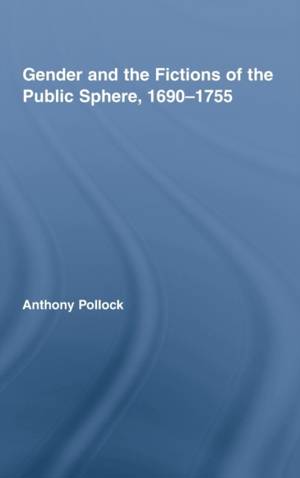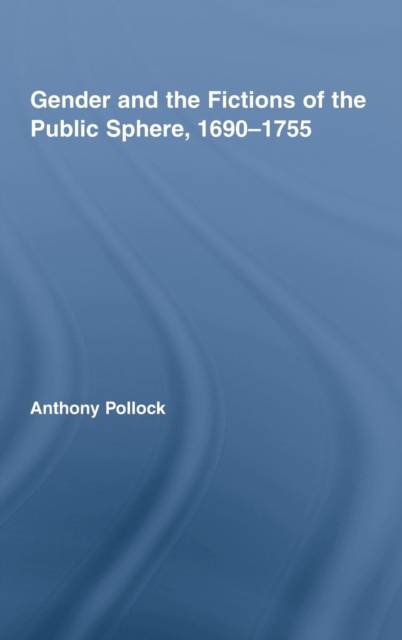
- Afhalen na 1 uur in een winkel met voorraad
- Gratis thuislevering in België vanaf € 30
- Ruim aanbod met 7 miljoen producten
- Afhalen na 1 uur in een winkel met voorraad
- Gratis thuislevering in België vanaf € 30
- Ruim aanbod met 7 miljoen producten
Gender and the Fictions of the Public Sphere, 1690-1755
Anthony PollockOmschrijving
Challenging the longstanding interpretation of the early English public sphere as polite, inclusive, and egalitarian this book re-interprets key texts by representative male authors from the period--Addison, Steele, Shaftesbury, and Richardson--as reactionary responses to the widely-consumed and surprisingly subversive work of women writers such as Mary Astell, Delarivier Manley, and Eliza Haywood, whose political and journalistic texts have up until now received little scholarly consideration. By analyzing a wide range of materials produced between the 1690s to the 1750s, Pollock exposes a literary marketplace characterized less by cool rational discourse and genial consensus than by vehement contestation and struggles for cultural authority, particularly in debates concerning the proper extent of women's participation in English public life. Utilizing innovative methods of research and analysis the book reveals that even at its moment of inception, there was an immanent critique of the early liberal public sphere being articulated by women writers who were keenly aware of the hierarchies and techniques of exclusion that contradicted their culture's oft-repeated appeals to the principles of equality and universality.
Specificaties
Betrokkenen
- Auteur(s):
- Uitgeverij:
Inhoud
- Aantal bladzijden:
- 232
- Taal:
- Engels
- Reeks:
- Reeksnummer:
- nr. 4
Eigenschappen
- Productcode (EAN):
- 9780415990042
- Verschijningsdatum:
- 19/09/2008
- Uitvoering:
- Hardcover
- Formaat:
- Ongenaaid / garenloos gebonden
- Afmetingen:
- 157 mm x 226 mm
- Gewicht:
- 453 g

Alleen bij Standaard Boekhandel
Beoordelingen
We publiceren alleen reviews die voldoen aan de voorwaarden voor reviews. Bekijk onze voorwaarden voor reviews.











